INTERNATIONAL PRODUCTION
Producing internationally is essential for many clients. It is one thing to
see a few photos and read a written account of a development project in a
book or on a web site. It is another to see a project in action, hear from
the people who are making it happen, and see the faces of people benefiting
from it. Provided that the video tells a good story and has the integrity
to show the bad with the good, it can be very powerful. The documentary we
produced for the World Bank which followed a tutor from school to school in
rural Uganda acted as an ambassador for educational reform all over the
world, and did much to persuade educators of the value of increased funding
for primary education.
But international production does offer some challenges. The romance of
film making can fade fast if you are not well prepared. Having worked in
(among others) El Salvador, Chile, Cuba, the Dominican Republic, Jamaica,
Mexico, and Uganda, we are in a position to share a few things. Apart from
the obvious value of having producers and crew who know how to function in
other languages and cultures, it is worth thinking about the following:
ALLOW MORE TIME THAN USUAL.
Try to keep shoots under 10 hours per day. For
prolonged shoots, schedule at least one day off per week to avoid fatigue,
illness, and accompanying loss of quality. Use a local driver who can help
keep an eye on equipment, avoid traffic jams, and not get lost. Allow a
paid day of preparation and recovery at each end of the trip.
KEEP IT SMALL.
It is valuable when clients can provide a content expert who
also has the authority to make decisions when plans have to change (no
pre-script can anticipate the wonderful and / or disastrous things that can
happen on location). But a film crew can rapidly become a circus,
attracting crowds of on-lookers and officials and disrupting the very
activities you are there to film. A producer, production manager,
videographer, audio person, camera assistant, driver, and perhaps a client
representative are enough for most documentary work.
PAY ATTENTION TO HEALTH.
You may be required to provide medical certificates
or proof of being HIV negative. Find out from State Department web site
what shots are required. In D.C. the George Washington University Hospital
Traveler's Clinic is set up to give shots and provide medicines and other
things you need, including potent bug spray and remedies for Montezuma's
Revenge. Make sure everyone is covered for Medivac rescue in case of
dangerous illness or injury. Ask about the safety of things like water and
lettuce. Take lots of bottled water on shoots and arrange to feed the group
to save time. Air conditioning and quiet are conducive to sleep and sleep
is conducive to patience and creativity for long, stressful shooting days.
TAKE ADVANTAGE OF LOCAL KNOWLEDGE.
Have an in-country producer who has worked for visiting crews before, knows the culture, and has connections. You can waste an enormous amount of time if you don't know the scene. We
have been unable to reach a development site because of floods, had vehicles
break down, had a pebble removed from a video recorder on a Sunday at the
local station, and lost part of a crew for several hours because the cell
phones wouldn't work. We were also detained at rifle-point for several
hours for filming automobiles which were for sale at a dealer's lot on a
public street. Ask about safety after dark, prices of things that are not
inflated, etc. Read up in advance. Let's Go and many other series of
travel books offer good country-specific advice about clothing, food, and
weather.
LOCAL CREW OR BRING YOUR OWN?
Each choice has its advantages and disadvantages. Using your own equipment and crew entails more expense, but may offer a level of quality and reliability not available in some
countries. A blend may work the best.
VISAS AND PERMITS.
It can often take weeks to get the required visas and
shooting permits. In some countries, your passport cannot be within six
months of expiring. Start planning early. Talk to the embassies to avoid
potential problems. Are bonds, work permits union restrictions required?
The film shooting fee in the British Virgin Islands is between $1000 and
$3000. Getting broadcast equipment in and out of countries can be
difficult, requiring permits, lists from U.S. customs. Spread the weight
around to avoid surcharges. Use hard cases and bubble wrap, since luggage
handlers consider it a kind of challenge to drop your equipment cases from
great heights. If you can, arrange for client representatives and a customs
agent to meet your plane to iron out problems. Small digital cameras are
less obtrusive than Betacam, but many of them are consumer cameras which not
built for rough conditions, so take two. In fact, take two of everything,
since repairs and spare parts are sometimes not available in some areas of
the world. Find out where equipment repairs are available. Sony often has
a regional service center nearby, and the engineers at local production
companies and stations can often be of help. Make sure your equipment
insurance is valid in the countries you are visiting. Have your camera
original tapes inspected by hand, even if airport personnel swear on their
mother's grave that their machines won't harm them.
FINAL CHECKLIST
. Passport, visa, work permit, international drivers license
. U.S. Embassy contact details
. Vaccination certificate, HIV test results (for some countries)
. Carnet (if traveling with equipment), bonds (if needed)
. Itinerary, airline tickets, rental car and hotel confirmations
. Credit cards, travelers checks, cash
. Reference material: maps, production directories, hotel guides, airline schedules, contact list, translation dictionary
. Talent release forms in the language of the country
. Digital or film stills camera and film
HELPFUL WEB LINKS
|
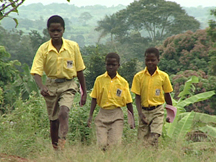
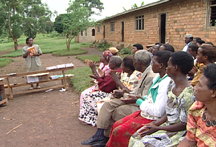

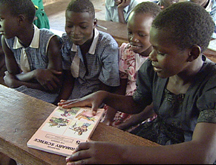
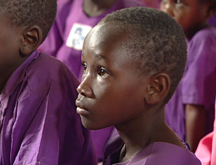
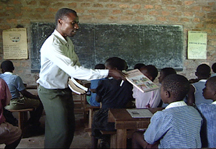
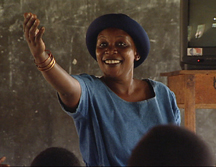
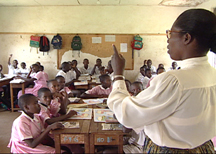
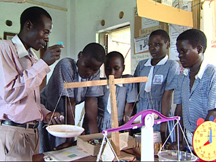
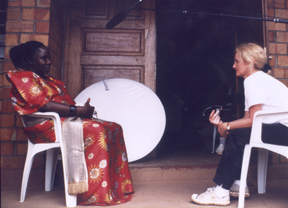
|

